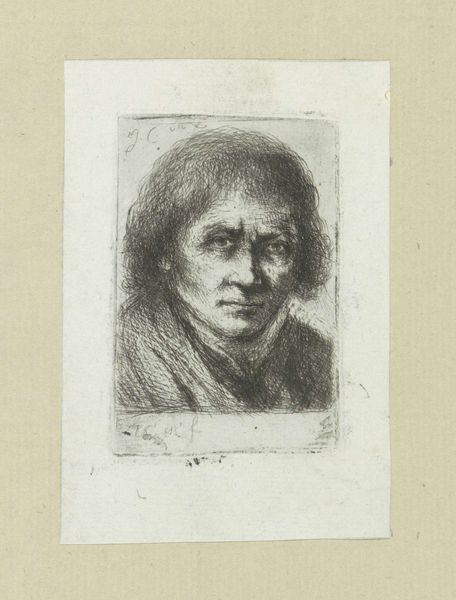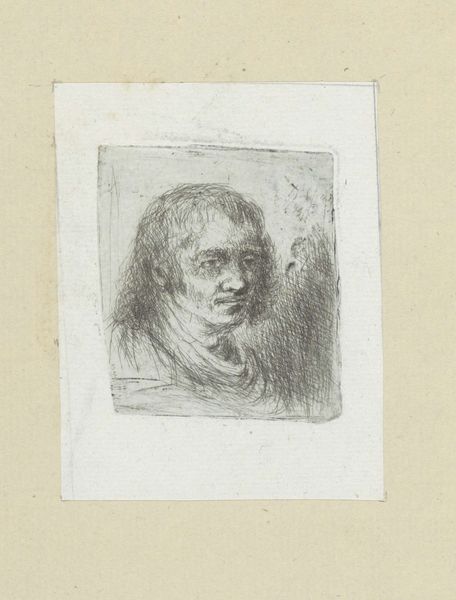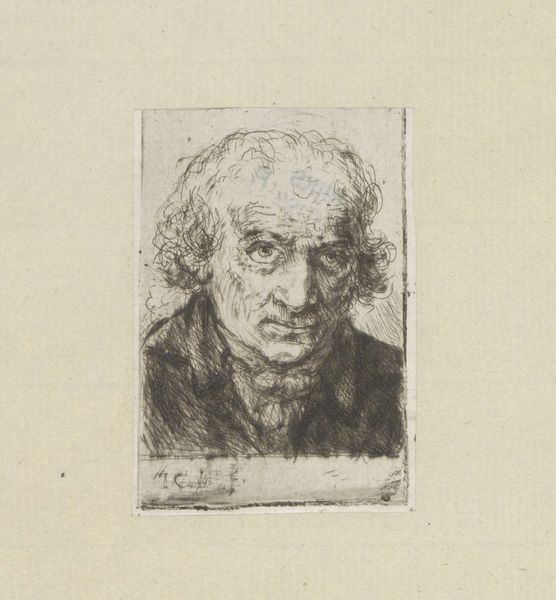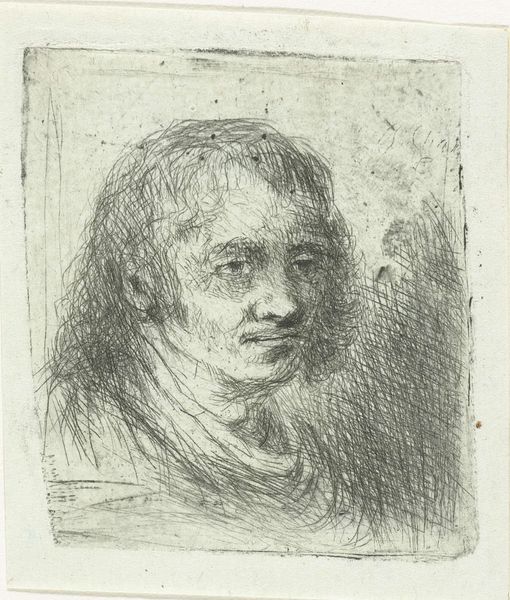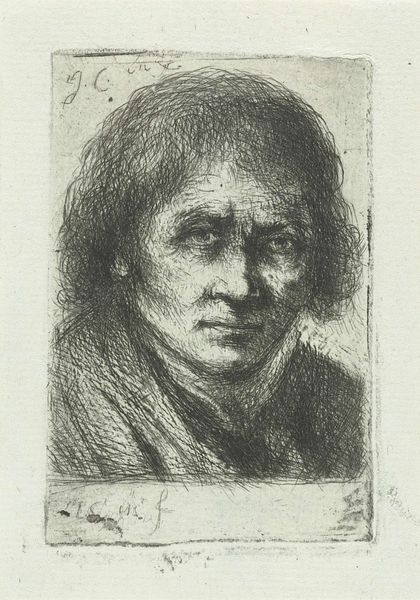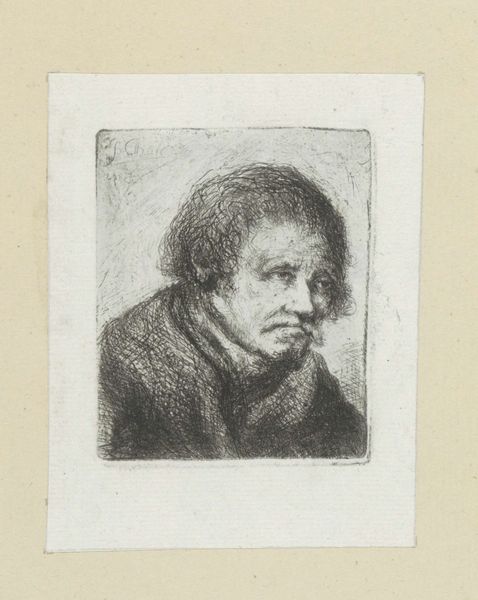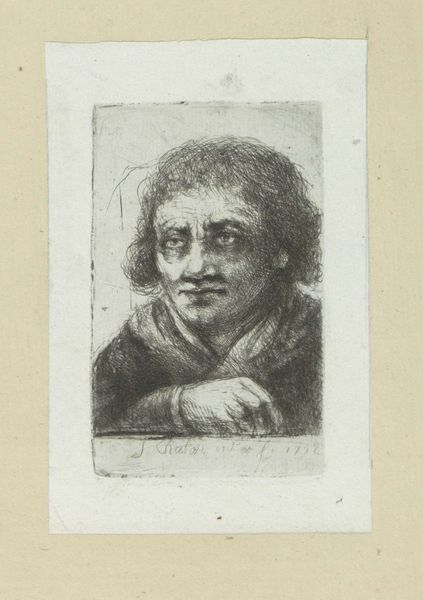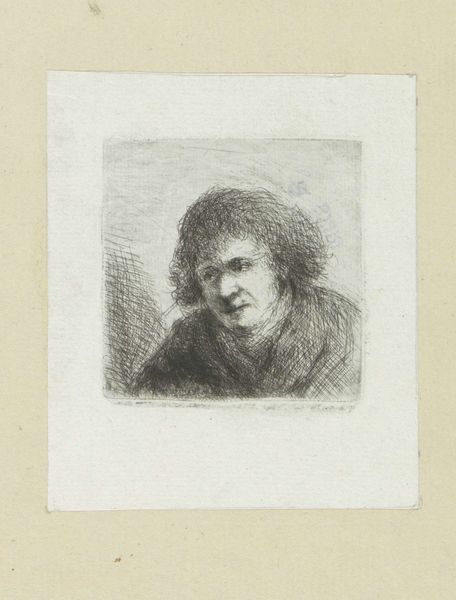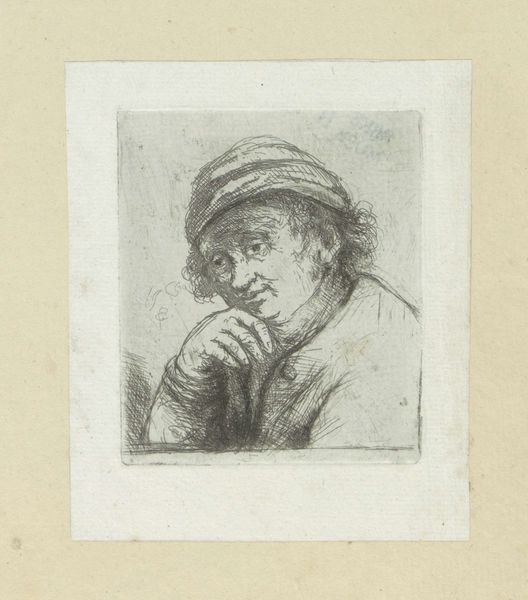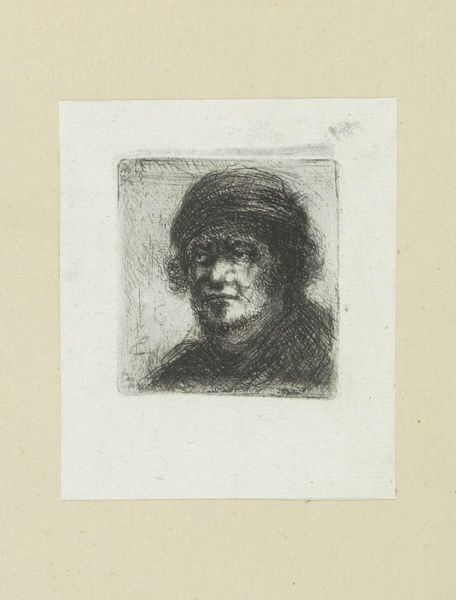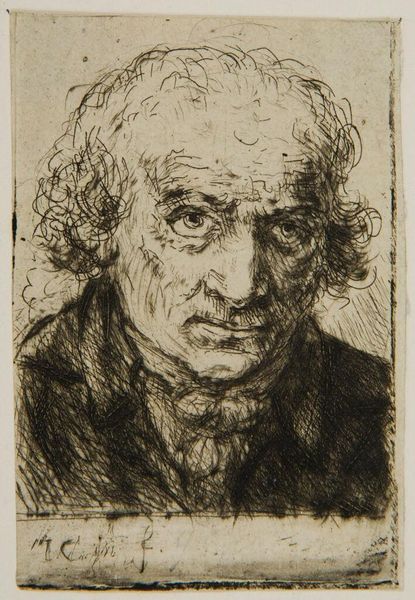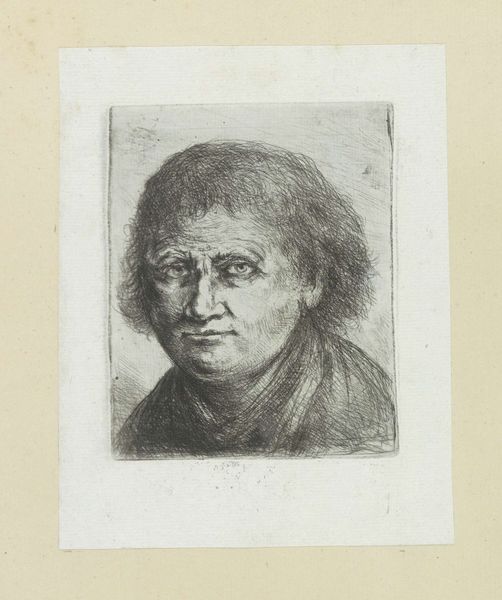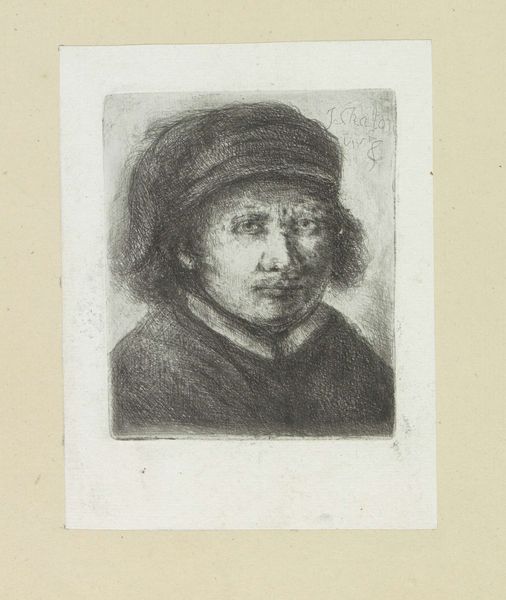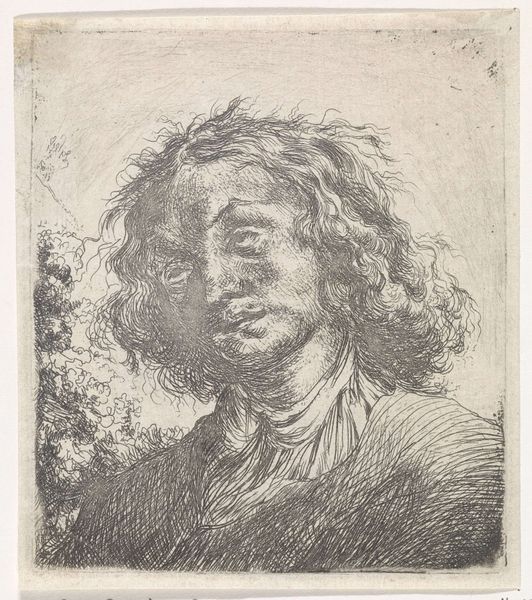
drawing, graphite
#
portrait
#
pencil drawn
#
drawing
#
pencil sketch
#
charcoal drawing
#
pencil drawing
#
romanticism
#
graphite
#
graphite
Dimensions: height 140 mm, width 100 mm
Copyright: Rijks Museum: Open Domain
Editor: Here we have Jan Chalon's "Volwassen man met sjaal," created between 1790 and 1802, a graphite drawing. The man's gaze is very direct; the tight hatching makes the face look a little severe. What do you see in this piece, and how might it speak to its historical moment? Curator: This drawing invites us to consider notions of masculinity and representation at the cusp of the 19th century. Notice how Chalon captures not just physical features, but also a certain psychological intensity. What societal pressures might this man have been experiencing? Does the scarf intimate something about the socio-economic conditions? Editor: The direct gaze you mentioned seems so modern to me, like he’s challenging the viewer. But would a portrait from this time typically serve that function? Curator: Perhaps not directly, but art often subtly challenges or reinforces dominant power structures. The gaze could be interpreted as asserting a kind of quiet defiance, especially when we consider the upheavals of the French Revolution happening during this period. How might artistic representations of men evolve because of it? Editor: So, the drawing might be read as subtly reflecting broader political and social tensions through its depiction of individual experience? Curator: Exactly. And how identity is perceived during this transformative era. Editor: I never would have considered those aspects. Thank you. I'm now keen to think about what power relations were subtly encoded within the artwork. Curator: Precisely, and every artwork holds such secrets. I appreciate your reading.
Comments
No comments
Be the first to comment and join the conversation on the ultimate creative platform.
